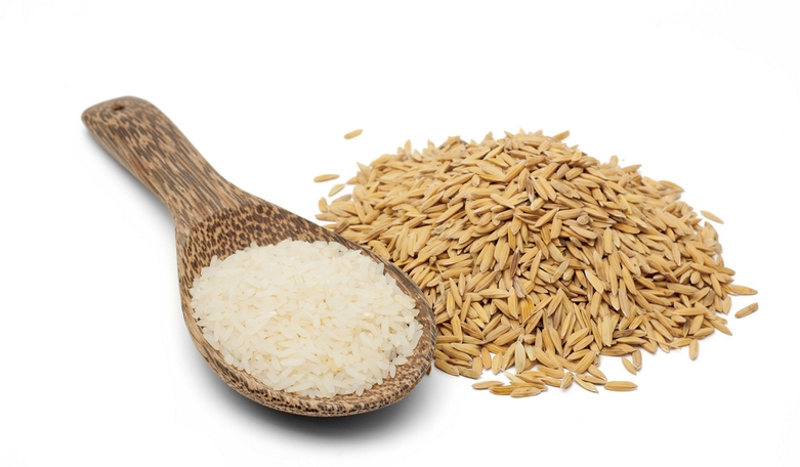
Carbs & Weight Management
Carbohydrates, or Carbs for short, are an ideal source of energy for your body! They convert to Glucose when digested, but too many and you can be looking at weight gain!
Although carbohydrates are a great source of energy, they can lead to weight gain if not kept in check as part of a balanced diet. In this guide we'll outline the basics for you; then see what good carbs and bad carbs are; see whether a low carb diet really can help with your weight loss; and finally, some tips for a healthy balanced diet.
Carbohydrates - The Basics
The ideal source of energy for your body, they can be converted most easily into glucose that your body needs to give you energy! There's two types of carbohydrates, "simple" and "complex" carbohydrates.
Simple carbs are also known as sugars and you can find these either in natural state (for example fruit) or as a refined/prepared form (biscuits, chocolate, sweets). If you want to get a complete breakdown then see our article here.
What's the difference between them - apart from the form in which you take them in. In short, complex carbohydrates take longer to breakdown and release their energy than simple carbs (sugars). Sugars are refined carbohydrates and the glucose is released into your blood stream quicker.
Excess glucose (which you don't use up) converts to glycogen, which is then stored by your body as fat!
Why Do Carbohydrates add the Pounds?
Ok as you can guess, too much glucose in your system and you start storing the excess as fat! That's the way your body is programmed. Putting on fat is not just a problem for carbs. Too much fat or protein (or alcohol) and you'll also start piling those pounds on.
Did you know that if you look at the calories per gram of Carbs vs Protein, Fats or Alcohol, carbs actually have less :
- 1g Carbohydrate contains just 3.75 calories
- 1g Protein contains 4 calories
- 1g Fat contains 9 calories
- 1g Alcohol contains 7 calories
So why are carbs picked out for being the bad guys? Simply because as a nation we eat foods that are high in sugars and starch and our portions are too big.
How Much Carbohydrate Should be in My Diet?
 It's a tricky question as there are quite a number of factors to consider and it varies for individuals.
It's a tricky question as there are quite a number of factors to consider and it varies for individuals.
We have read that between 45% and 65% of your total calorie consumption should come from carbohydrates. For example, dietary guidelines for Americans from the Department of Health state that roughly 50% of calories should come from carbohydrates.
However, its not just a matter of how much of your calorie intake, it's also a question of what type of carbohydrates you are eating. Complex carbohydrates that include whole grains, vegetables and fruits tend to break down slower and have less fat. Refined sugars break down quickly and release glucose into your system faster. Biscuits, chocolate, soft drinks and sweets not only convert from glucose to glycogen (and get stored as fats), many of these foods often also contain high amounts of fat!
Can I lose Weight By Reducing Carbs?
Losing weight is achieved by both changing your diet and also increasing your exercise. But it is also a fact that if you reduce the amount of carbohydrates in your diet, especially the simple carbohydrates, then you will lose weight.
In the largest study of its type ever conducted, back in 2010 researchers at the University of Copenhagen monitored 772 families, comparing five different diets to see which was the most effective at maintaining weight loss.What they found was that the best way to achieve weight loss is by cutting carbs and increasing protein intake. We cover this in more detail in a specific article available here.
Cutting back on simple carbs (or sugars) is great, as carbs that are also high in fat like cakes, biscuits and chocolate, tend to also be low in nutrients and will in all likelihood will lead to weight gain. So, think not just in terms of quantity, but quality and try to ensure a healthy balance in your diet.
What About Low Carb Diets?
 What about switching to a diet that is low in carbs then? You may have heard lots about various low carb diets including Atkins' Diet, Scarsdale Diet, Zone Diet and the High Protein Diet. These have been quite 'fashionable' as they encourage the body to burn fat as a source of energy. The risk here is that carbs are a good source of vitamins and minerals.
What about switching to a diet that is low in carbs then? You may have heard lots about various low carb diets including Atkins' Diet, Scarsdale Diet, Zone Diet and the High Protein Diet. These have been quite 'fashionable' as they encourage the body to burn fat as a source of energy. The risk here is that carbs are a good source of vitamins and minerals.
Drastically reducing your consumption of carbohydrates for an extended period can have a negative impact on your body's ability to function properly. With a reduction in vitamins and minerals, certain essential processes could be hindered like you need key vitamins to help your circulatory and immune systems.
In Summary
Carbohydrates are vital in one form or another to provide your body with the necessary glucose. Whether you reduce your sugars or remove them completely, making sure you have a diet with complex carbohydrates in will provide you with long term energy, rather than short bursts.
Balancing your diet and combining this with exercise will always give you a much better chance with any weight management plan.
Further Reading
US Department of Health - http://health.gov/dietaryguidelines/2010.asp
University of Copenhagen - http://news.ku.dk/
Most Popular
You may also be interested in...
Fancy a Low Fat Diet?
Learn more about what a low fat diet actually means in reality! If you fancy this route for your slimming program, then read what's involved so you know exactly what you are letting yourself in for.Weight Loss Management
With weight loss management, it is all about the long term rather than a quick fix. Ensure you're losing weight safely and for good, rather than the Yo-Yo effect!The Keto Diet Plan
Want to know about the Keto diet plan? For a high fat, low carb diet, this is the one. The diet forces the body to burn fats rather than carbohydrates.What are Low Fat Diet Plans?
When you’re trying to lose weight, low fat diet plans seem to make a lot of sense – surely eating less fat will make you, well, less fat? Get the low down on these diets now.Diet and Exercise
Discover how diet and exercise can help you to achieve healthy weight loss and real weight management.
